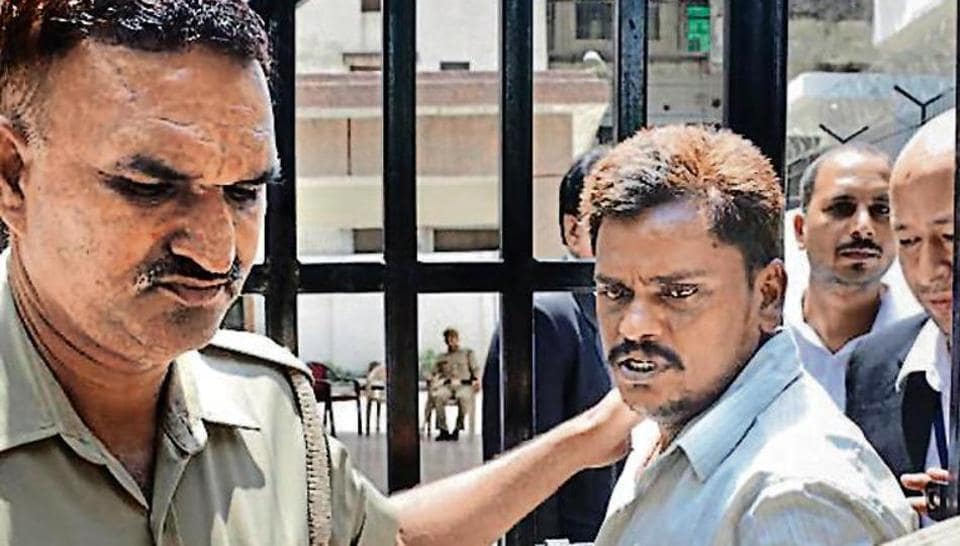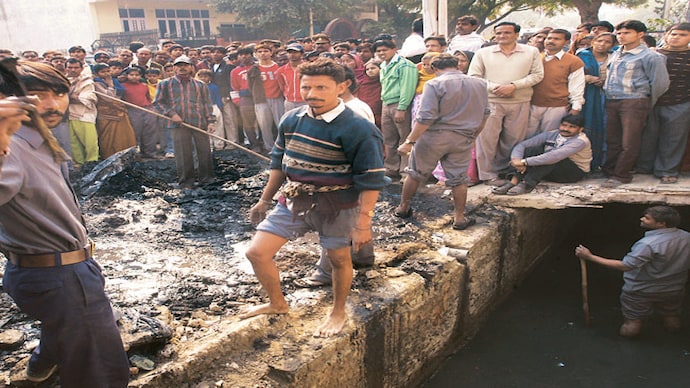
Case of Nithari The Allahabad High Court recently exonerated Moninder Singh Pandher and Surinder Koli in the infamous Nithari case, a decision that shocked the whole nation. This incident, which involved the finding of eight children’s skeleton remains in a Noida sewer in December 2006, had captivated the nation’s attention. However, the court’s findings of severe errors in the inquiry and a breach of key principles of evidence gathering have left many disappointed with the ruling.
Table of Contents
“Key Developments in the Nithari Case Investigation: The Role of ‘A’ Witness and Surinder Koli’s Confession”
When the Uttar Pradesh Police opened an inquiry, the Nithari case was first made public. Later, the investigation was taken up by the Central Bureau of Investigation (CBI). A number of issues have been brought up by the court’s evaluation of the investigative process, particularly with reference to the missing “A” critical witness who vanished throughout the inquiry. The court noted that Surinder Koli’s confession to the UP Police on December 29, 2006 served as the foundation for the prosecution’s case against Pandher.

“Critical Flaws in Nithari Case Investigation: Questionable Procedures and Shifting Accountability”
The prosecution’s inability to follow the required processes for questioning the accused, which resulted in the finding of skeletal remains and bones, is made abundantly obvious in this verdict. The court condemned the case’s arrest, recovery, and confessional parts for taking a casual and informal attitude. Furthermore, it drew attention to the fact that the prosecution first intended to charge both Pandher and Koli jointly before eventually placing all of the responsibility on Koli as the case developed. Amazon Link https://www.amazon.in/Fire-Boltt-Phoenix-Bluetooth-Calling-Monitoring/dp/B0B3RRWSF6/?_encoding=UTF8&pd_rd_w=c4Dix&content-id=amzn1.sym.6b95a7bb-790e-4951-b966-0f05e9bb2a73&pf_rd_p=6b95a7bb-790e-4951-b966-0f05e9bb2a73&pf_rd_r=0KK4NB3PZRV6HA0PMV8M&pd_rd_wg=RZaN4&pd_rd_r=8fb662a0-451e-48ac-b729-804496cc9bd7&ref_=pd_gw_CEPC&th=1

“In Nithari Case: No Recovery from Pandher’s Home, Ambiguous Weapon Use After Murders”
The court further observed that no recovery was made from Pandher’s home and that all human remains were found in the drain next to houses D -5 (Pandher’s) and D -6 (a doctor’s household). Although several items, including knives and a cleaver, were recovered, they were not directly connected to severe crimes like murder. Instead, it is claimed that they were applied to the bodies after they had been strangled.

The court emphasized that the prosecution did not look into the likelihood of organ trafficking and the involvement of several institutions, despite suggestions made by a high-level committee assembled by the Ministry of Women and Child Development. The characterization of a poor domestic worker as a “monster” without following due process was questioned by the court.
It went on to say that the potential for human trafficking for the organ trade might be blamed for a number of grave errors. The court stressed the necessity for a full examination of these factors at the proper level, but avoided making any firm assertions in this respect. It is vital that the accused have a fair trial and that verdicts are not based on a lack of evidence, especially in situations involving the death of children and women.
“Allahabad High Court’s Decision in Nithari Case: Overturning Death Sentences and the Pursuit of Justice”
The Allahabad High Court has now vacated the death sentence that the lower court had imposed on the defendant on July 24, 2017. If the accused is not needed in any other cases, they will be freed in accordance with Section 437A of the Code of Criminal Procedure. The court emphasized that taking the lives of women and children is a serious problem, particularly since the murders were carried out in a brutal way. However, it would not be right to convict the guilty without sufficient evidence and deny them a fair trial.

“Nithari Case Verdict Sparks Calls for Police Reforms and Legal System Overhaul”
The Nithari case decision has highlighted the urgent need for police reforms and an overhaul of the investigation processes by exposing the flaws in the Indian criminal justice system. It has sparked questions about how the justice system manages cases involving heinous crimes, highlighting the significance of a fair and impartial trial.
“Nithari Case Verdict Exposes Cracks in Indian Justice System, Fuels Demand for Police and Legal Reforms”
निठारी मामले के फैसले ने भारतीय आपराधिक न्याय प्रणाली की खामियों को दर्शाया है, जिसमें पुलिस में बदलाव और जांच प्रक्रियाओं में सुधार की तत्काल आवश्यकता पर जोर दिया गया है। इसने निष्पक्ष और निष्पक्ष सुनवाई के महत्व पर प्रकाश डाला है और सवाल उठाया है कि न्याय प्रणाली जघन्य अपराधों से जुड़े मामलों को कैसे संभालती है।

great article